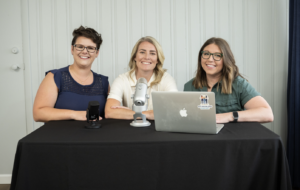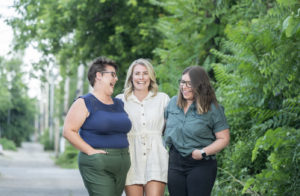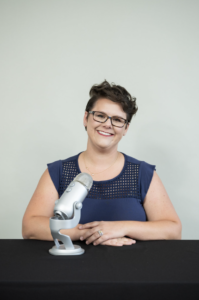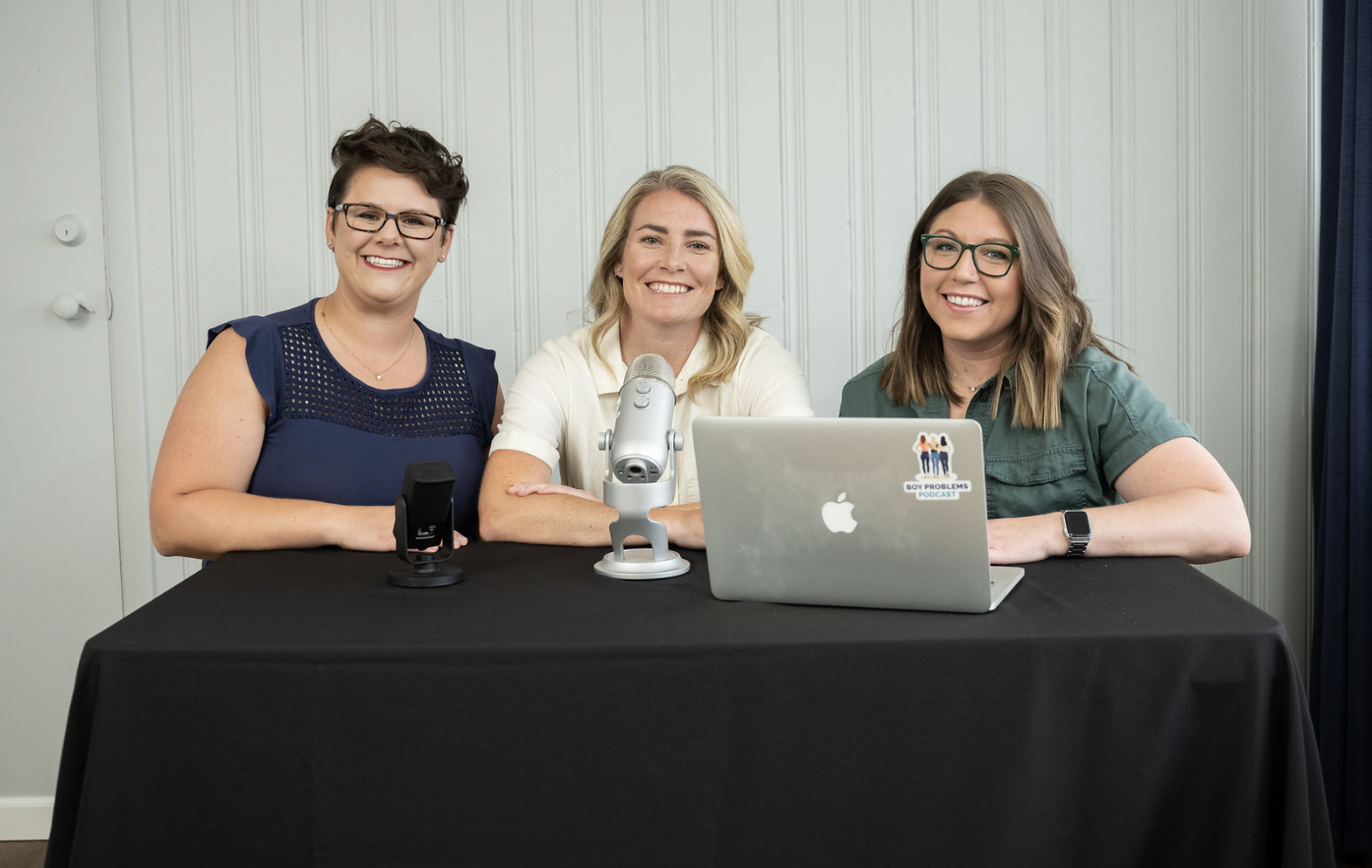Three Local Women Create Podcast Tackling Addiction and Recovery
Writer / Renee Larr
Photographer / Amy Payne
 When each of their partner’s journeys with addiction landed them in the same family support group, three women banded together to offer each other support and share their deeply personal stories.
When each of their partner’s journeys with addiction landed them in the same family support group, three women banded together to offer each other support and share their deeply personal stories.
Fishers resident Katie McHone-Jones was blindsided by the discovery of her husband’s nine-year addiction. When her husband entered treatment in 2015, she found a safe place to share her very private grief.
“I thought this support group was the perfect place for me because there is so much shame and stigma surrounding addiction,” McHone-Jones says. “I wasn’t telling friends or family what was happening in my household. This was a place where I could deal with all the anger and pain I was going through at the time with others who understood.”
Shortly into her relationship, Westfield resident Jessica Miller-Bock learned her then-boyfriend, who had returned home from Iraq as a veteran, had an addiction to pain pills. He attended a recovery program through the VA but quickly relapsed after leaving. He then entered a different, local treatment facility where Miller-Bock learned of the same family support group.
Indianapolis resident Shannon Sullivan noticed things were off in her relationship but couldn’t quite pinpoint why. When her partner’s addiction started crashing down on him, Sullivan was partially blindsided but partially relieved to finally learn the truth.
 “When I started attending the support group, I was one of the younger members,” Sullivan says. “Many of the members were parents of people with addictions. So when I met Jessica and Katie, we quickly connected because of our similar stories.”
“When I started attending the support group, I was one of the younger members,” Sullivan says. “Many of the members were parents of people with addictions. So when I met Jessica and Katie, we quickly connected because of our similar stories.”
The three women would meet for lunches to discuss what each was dealing with, as they were also recovering from their partners’ journeys with addiction. After five years of dishing about their very private lives, the trio decided to start a podcast. Using pseudonyms, they started the podcast “Boy Problems” in 2019.
“I’m the least open of the three of us,” Miller-Bock says. “In the beginning I found sharing my story particularly challenging because, let’s be honest, there is a lot of shame and guilt associated with addiction. However, when we started anonymously it took much of the stress off me. I knew how valuable that group was to me and how valuable it could be to others.”
After a few years of anonymity, McHone-Jones pushed the group to rebrand the podcast using their actual names. She realized there were many resources available for addicts but felt there were very few for family members.
“It was important that we start sharing more than just our stories, but also resources and education for those who might not have them,” McHone-Jones says. “For every one addict, there are about five or six family members who are wrapped up in their care, so we felt this was a very underserved community.”
The women have started an open support group for anyone dealing with a loved one and their addiction and/or recovery, on the third Tuesday of each month. Sullivan says the support group was essential for her to provide because of how instrumental the one she attended was in her recovery process with her partner.
 Miller-Bock says one important distinction she wants to share with others is that addiction affects almost everyone. She says drug addicts can be anyone, including friends and neighbors. It’s vital for her to normalize the disease. You might want to find more information here!
Miller-Bock says one important distinction she wants to share with others is that addiction affects almost everyone. She says drug addicts can be anyone, including friends and neighbors. It’s vital for her to normalize the disease. You might want to find more information here!
Sullivan adds that addiction doesn’t discriminate based on age, gender, race or socioeconomic status. She says there are many portrayals of people in active addiction, but fewer visuals associated with recovery.
“It’s important for people to see that addicts can recover and go on to lead happy, healthy, successful lives,” Sullivan says.
The podcast is a passion project for each woman, but McHone-Jones sees an expansive future for the group. She would love to add a care component for single mothers seeking treatment.
“A big dream of mine is to offer some type of care for children of single mothers who are in treatment,” McHone-Jones says. “I’d love to offer a place where the kids can get dropped off for a few hours while their mother can attend recovery meetings. I’d also love to figure out a way to provide legal assistance to those moms who may have lost their kids due to their addiction.”
Learn more at recoveringtoo.com. For additional resources, visit naadac.org.






